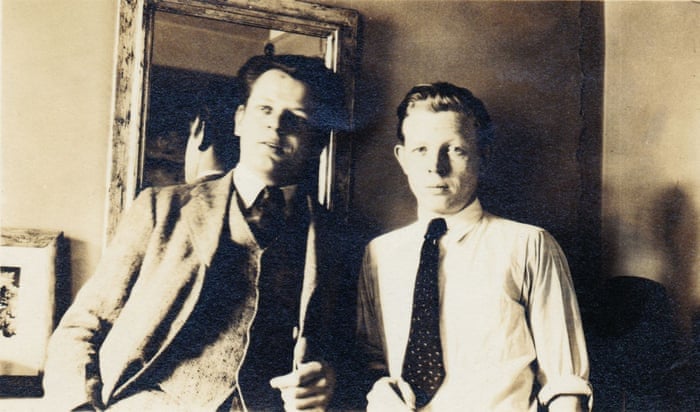It May Never End
A Year Into Remote Work, No One Knows When to Stop Working Anymore
Workers are exhausted from nonstop working from home; many managers want to get everyone off the treadmill and breathing again
By Chip Cutter
The daily alarm Katie Lipp sets isn’t meant to wake her up. It reminds her to go to bed.
The employment attorney in Fairfax, Va., said she has tried a range of techniques to set boundaries while working long days from home running her law practice during the pandemic. Few measures work as well as the 9:45 p.m. alarm she started setting last month, though she admits to snoozing it occasionally to fire out one last email.
“You never feel like what you’re doing is good enough, so you get stuck in a trap of overworking,” Ms. Lipp, the mother of a 5-year-old, said. “Sleep is the difference. If I get like eight to nine hours, I can take on the world. If I have six hours of sleep, it’s like the walking dead.”
A year into the Covid-19 era, many can relate. Employees say work-life boundaries blurred, then vanished, as waking life came to mean “always on” at work. Experts warn that working around the clock—while slipping in meals, helping with homework and grabbing a few moments with a partner—isn’t sustainable, and employers from banking giant Citigroup Inc. to the software company Pegasystems Inc., are trying ways to get staff to dial back.
Warhol Loses
US court sides with photographer in fight over Warhol art
By LARRY NEUMEISTER

NEW YORK (AP) — A U.S. appeals court sided with a photographer Friday in a copyright dispute over how a foundation has marketed a series of Andy Warhol works of art based on one of her pictures of Prince.
The New York-based 2nd U.S. Circuit Court of Appeals ruled that the artwork created by Warhol before his 1987 death was not transformative and could not overcome copyright obligations to photographer Lynn Goldsmith. It returned the case to a lower court for further proceedings.
In a statement, Goldsmith said she was grateful to the outcome in the 4-year-old fight initiated by a lawsuit from the Andy Warhol Foundation for the Visual Arts. She said the foundation wanted to “use my photograph without asking my permission or paying me anything for my work.”
Beverly Cleary Gone
Beverly Cleary, beloved and prolific author of children’s books, dies at 104
By VALERIE J. NELSON
With witty yet economic prose and a gift for recalling the inner emotions of childhood, Beverly Cleary wove timeless tales that took young readers back to the Portland, Ore., of her youth.
Her stories served as a collective touchstone for the childhoods of many baby boomers, and succeeding generations, who saw themselves in the pages of her work.
Cleary died Thursday in Carmel, where she had lived since the 1960s. She was 104.
The grande dame of children’s literature, she wrote both humorously and realistically about the anxieties of childhood in such enduringly popular books as “Henry Huggins” and “Beezus and Ramona.”
The Good Ol’ Days of Movies and Mosquitoes
The 25 Most Charming Drive-In Movie Theaters Left in America
Forget Netflix, of the roughly 350 remaining drive-in theaters in the U.S., these establishments are quintessential Americana

When it comes to midcentury design, boomerang tables and walnut credenzas get all the love. But what about drive-in movie theaters? Although many succumbed to the popularity of indoor cinemas, followed by the rise of Netflix, about 350 remain in operation today, a steep dive from the 4,000 or so that once served as after-dark entertainment during summer. One is even opening in Nashville in next month or so: the August Moon Drive-In, a re-creation of a 1960s drive-in—complete with burgers, shakes, and classic cars—as well as the largest non-IMAX theater in the country. From New York’s Hudson Valley to Southern California, here are 25 of the most charming from coast to coast, folding in ambiance and décor from a bygone era (complete with vintage cars). Bring a soft blanket, lawn chairs, and bug spray, plus some cash for popcorn, and you’ve got all the goods for the perfect summer evening.
Just In Time Disaster
Shipping losses mount from cargo vessel stuck in Suez Canal
By JON GAMBRELL and SAMY MAGDY
ISMAILIA, Egypt (AP) — Dredgers, tugboats and even a backhoe failed to free a giant cargo ship wedged in Egypt’s Suez Canal on Thursday. More than 150 vessels are now backed up, with hundreds more headed to the vital waterway, and losses to global shipping are mounting.
The skyscraper-sized Ever Given, carrying cargo between Asia and Europe, ran aground Tuesday in the narrow, man-made canal dividing continental Africa from the Sinai Peninsula. Even helped by high tides, authorities have been unable to push the Panama-flagged container vessel aside, and they are looking for new ideas to free it.
Madnfts In The Housing Market
World’s first digital NFT house sells for $500,000
by Lianne Kolirin

Having spent so much time at home over the last year, many people are craving a change in their surroundings. But if a coat of paint or some creative renovations fail to do the trick, there is now a more extreme alternative: The digital house. Mars House, the world’s first digital NFT (non-fungible token) home, has recently sold for more than $500,000.
NFTs have made headlines recently, allowing digital art and other musings such as drawings or music to be sold online.An NFT is a unique digital token which effectively verifies authenticity and ownership. It is encrypted with the artist’s signature on the blockchain, a digital ledger used in cryptocurrencies such as bitcoin.
The new owner paid digital artist Krista Kim 288 Ether — a cryptocurrency that is equivalent to $514,557.79 — for the virtual property. In exchange, the buyer will receive 3D files to upload to his or her “Metaverse.”Metaverse is a virtual extension of our world, Kim told CNN Tuesday, where plots of virtual land are purchased and traded, and digital homes and business are built.
1925
Was 1925 Literary Modernism’s Most Important Year?
By Ben Libman

“An illiterate, underbred book it seems to me: the book of a self-taught working man, & we all know how distressing they are, how egotistic, insistent, raw, striking & ultimately nauseating.” So goes Virginia Woolf’s well-known complaint about “Ulysses,” scribbled into her diary before she had finished reading it. Her disparagement is catnip to those many critics who like to view “Mrs. Dalloway” — that other uber-famous, if more lapidary, modernist novel that spans the course of a single day — as Woolf’s rejoinder to Joyce. More than that, though, it tells us something important about our literary history. Nineteen twenty-two, the year of “Ulysses,” may well be ground zero for the explosion of modernism in literature. But the resultant shock wave is better captured by another year: 1925, that of “Mrs. Dalloway” and several other works, all now in the spotlight in 2021, as they emerge from under copyright.
If many an English-majored ear perks up at the sound of “1922,” it’s mostly because of the two somewhat ornery men who published their masterpieces that year: Joyce and T. S. Eliot. “Ulysses” and “The Waste Land” are taught everywhere and almost without exception as “signifying a definitive break in literary history,” to quote the critic Michael North from his book “Reading 1922.” Both the novel and the poem are notoriously challenging, obscurely allusive and highly uneasy about their modern time and the rubble of tradition astride which it stood. Both are also often distressing, egotistic, insistent, raw, striking and (depending on one’s mood) ultimately nauseating. And it is precisely these qualities that account for their hold on our literary imagination. They represent everything that literary modernism is meant to: rupture, difficulty and, of course, making it new.
Yet 1925 is arguably the more important date in modernism’s development, the year that it went mainstream, as embodied by four books whose influence continues to shape fiction today: Woolf’s “Mrs. Dalloway,” Ernest Hemingway’s debut story collection, “In Our Time,” John Dos Passos’ “Manhattan Transfer” and F. Scott Fitzgerald’s “The Great Gatsby.” Compared with the masterpieces of 1922, these books — all slated for reissue in new editions this year — entered our culture in relatively unspectacular fashion. But it’s precisely their unassuming guise that allowed them, by osmosis rather than disruption, to diffuse their modernist conceits throughout the literary field, ensuring their widespread adoption.
Mouse Plague in Oz
‘You can’t escape the smell’: mouse plague grows to biblical proportions across eastern Australia
Locals who have endured months of mice and rats getting into their houses, stores and cars are praying heavy rain will help wipe them out
Warning: graphic images may disturb some readers
Drought, fire, the Covid-19 pestilence and an all-consuming plague of mice. Rural New South Wales has faced just about every biblical challenge nature has to offer in the last few years, but now it is praying for another – an almighty flood to drown the mice in their burrows and cleanse the blighted land of the rodents. Or some very heavy rain, at least.
It seems everyone in the rural towns of north-west NSW and southern Queensland has their own mouse war story. In posts online, they detail waking up to mouse droppings on their pillows or watching the ground move at night as hundreds of thousands of rodents flee from torchlight beams.
Lisa Gore from Toowoomba told Guardian Australia her friend stripped the fabric of her armchair when it began to smell, only to find a nest of baby mice in the stuffing.
Dubbo resident Karen Fox walked out of the shower on Friday morning to see a mouse staring at her from the ceiling vent. There’s nothing she can do, she says, because the stores are sold out of traps.
The COVID Seas
from The Daily Beast via Yahoo! News
Coronavirus Nightmare at Sea for the World’s Most Essential Workers
by Charissa Isidro

“We were out of sight and out of mind,” says Second Officer Jaisal Bhati. “Everybody forgot about us (and) everyone turned a blind eye.” Behind the scenes of the coronavirus pandemic, an invisible workforce of about one million seafarers has continued to toil on bulk carriers, oil tankers, fishing vessels, cruise ships, and more. These people have crisscrossed the world, many working seven-day weeks with no holidays or even sick days delivering medicines, grain, coal, fuel—and now vaccines. “They wanted our services but they did not want us.”
Even in normal circumstances, weathering the perilous seas with limited personnel is a tough, dangerous job. A regular cargo ship might be crewed by only 20 people, each with designated duties—a ship at sea, like a plane in the air, requires constant attention so one cannot simply “down tools” and leave it unattended without risking catastrophe. On top of their daily tasks, each seafarer has emergency responsibilities for fire, health, defense, come what may. There are no separate firemen, doctors, or policemen on board. It’s just the crew, where every worker is essential and any delay is unthinkable.
Big Brother Pollock
Jackson Pollock’s Older Brother Charles Was the Family’s First Artist. Now, an Exhibition Brings Their Work Together for the First Time
Their careers diverged, but the brothers remained devoted to each other.
by Katie White

Did Jackson Pollock become an artist because he was copycatting his older brother? Believe it or not, the pugnacious Abstract Expressionist was the baby brother in his family—the youngest of five sons born to Leroy and Stella Pollock. What’s more, he wasn’t his family’s first artist. That title belonged to Charles, the eldest of the Pollock brood and a decade Jackson’s senior.
“Charles started this whole damn thing,” said Sanford McCoy, the Pollocks’ middle brother, once in an interview. “Charles was the fellow who had the intellectual curiosity all along.”
Now, “Charles and Jackson Pollock” an exhibition at the Society of the Four Arts in Palm Beach, Florida, (through March 28) marks the first time that works by the two brothers have been shown side by side.
The Old Game Lady
Facing Post-Trump Slowdown, New York Times Eyes $100 Billion Games Market
by Gerry Smith

(Bloomberg) — The most searched-for terms on the New York Times website last year weren’t “Trump” or “Biden” or even “coronavirus.”
They were “crosswords” and “Spelling Bee,” the name of the Times’s online word game — part of the newspaper’s attempt to grab a bigger piece of the $100 billion market for mobile games.
The Times is under pressure lately to diversify away from news. With Donald Trump’s chaotic presidency over — and the riveting events of 2020 in the rearview mirror — the newspaper has warned that subscriber gains won’t continue at the rate they did last year. So the company is looking to games to help maintain its momentum.
Post-COVID Pico
A year of change on Pico Boulevard

Los Angeles imposed coronavirus restrictions on restaurants, bars, gyms and other businesses on March 15, 2020. It was the beginning of a year of loss, upheaval and constant adaptation.
Public health rules kept evolving. Relief programs brought help for some but only red tape for others. Supply chains were a mess. There were shoppers who feared even entering stores and customers who crowded newly built patios.
Some businesses cut hours, services and staff, or closed altogether. Many have survived beyond their expectations.
A trip down Pico Boulevard shows how much has changed one year later.
Mo’ Space Trash
Massive piece of space junk tossed from ISS sets new record
By Daniel Uria, UPI

March 15 (UPI) — A pallet of batteries was released from the International Space Station last week, becoming the heaviest single piece of junk ever jettisoned from the station.
Mission controllers in Houston commanded the Canadarm2 robotic arm to release an external pallet loaded with the 2.9 tons of nickel-hydrogen batteries into Earth’s orbit Thursday morning.
“It is safely moving away from the station and will orbit Earth between two to four years before burning up harmlessly in the atmosphere,” NASA said in a statement.
NASA representative Leah Cheshier confirmed to Gizmodo that the pallet is the largest object “mass wise” ever to be dispelled from the ISS.
The Antikythera Mechanism
This Mysterious Ancient Greek Device May Be the First Computer. Now Scientists Have Just Taken a Big Step Towards Making It Work
The Antikythera Mechanism has been recreated in a computer simulation—yet enigmas still remain.

Scientists are one step closer to unlocking the secrets of the 2,000-year-old Antikythera Mechanism, considered the world’s first computer, thanks to a new computer-generated reconstruction of the ancient device.
Researchers from the University College London have unveiled their computational model in the journal Scientific Reports, and are currently in the midst of building a physical replica.
Discovered in 1901 off the coast of the Greek island of Antikythera, the mechanism was actually an astrological clock that would have shown the movement of the five known planets and predicted astronomical events such as the phases of the moon and lunar and solar eclipses—but with the earth placed at the center of the universe.
Marvelous Marvin Gone
Undisputed middleweight champion Marvelous Marvin Hagler dies at age 66 after one of his biggest rivals Tommy Hearns said he was ‘in an ICU fighting the effects of the vaccine’
Boxing was in mourning on Saturday night after the shock death of one its all-time greats, Marvin Hagler, at just 66, after he reportedly suffered side effects of the COVID-19 vaccine.
The American boxer – born in Newark, New Jersey – dominated the sport’s middleweight scene, which he was champion of between 1980 and 1987.
He was also named as the Fighter of the Decade for the 1980s by Boxing Illustrated magazine and won the Ring Magazine Fighter of the Year award twice.
Back to Smallville
Small-Town Natives Are Moving Back Home
For many young people, returning to struggling communities means exchanging prosperity for a more rooted life.
By Grace Olmstead

My great-grandfather, who died in 2007, stayed in the same little Idaho farm town for all 96 years of his life. Even as his siblings left the farm and traveled the world, “Grandpa Dad,” as we called him, turned down opportunities for adventure and bigger paychecks. But he had something that many people who have left their hometowns behind, like me, would like to regain: roots.
Over the past few years, a growing number of Americans have been moving back to the small towns and rural communities they were once encouraged to leave. Thanks in part to the Covid-19 pandemic, 52% of adults age 18 to 29 lived with their parents in 2020, the largest share since the Great Depression, according to the Pew Research Center. Meanwhile, Census Bureau data indicate that large metro areas have seen declining growth and in some instances population losses since 2010.
Many people move home to help out with family businesses, support aging loved ones or share the joys of small-town life with their kids. I left Fruitland, Idaho, for college on the East Coast in 2009 and now live in northern Virginia. While writing a book about the farm community where I grew up, however, I discovered many people who have chosen to move back home as part of a larger mission. They are fighting rural poverty, restoring broken food economies and bringing health back to neglected soil. Their vision of success has less to do with financial prosperity or personal comfort than with the more demanding values of stewardship, investment and care.
Always Worth Watching Again
NFT ART
Digital artwork sells for record $69 million at Christie’s first NFT auction
The first purely digital work sold by an established auction house brings blockchain into the world of fine art.
By Michela Moscufo

Christie’s auction house sold its first purely digital artwork Thursday for a record $69 million, the highest price paid for an NFT, or nonfungible token.
The work, “Everydays: The First 5000 Days,” is by Mike Winkelmann, who goes by the name Beeple. The work is a collage of 5,000 drawings, one created and posted every day for the past 13 and a half years.
Originally created with pen and paper and now mostly illustration software, the sketches run the gamut from an angular line drawing of his first baby to Hillary Clinton and well-known cartoon characters.
The winning bidder owns the work in the form of a unique string of code, called a nonfungible token. The piece has no physical presence and will be “delivered directly from Beeple to the buyer, accompanied by a unique NFT encrypted with the artist’s unforgeable signature and uniquely identified on the blockchain,” Christie’s said.
Shapira’s Scroll
Is a Long-Dismissed Forgery Actually the Oldest Known Biblical Manuscript?

In 1883, a Jerusalem antiquities dealer named Moses Wilhelm Shapira announced the discovery of a remarkable artifact: 15 manuscript fragments, supposedly discovered in a cave near the Dead Sea. Blackened with a pitchlike substance, their paleo-Hebrew script nearly illegible, they contained what Shapira claimed was the “original” Book of Deuteronomy, perhaps even Moses’ own copy.
The discovery drew newspaper headlines around the world, and Shapira offered the treasure to the British Museum for a million pounds. While the museum’s expert evaluated it, two fragments were put on display, attracting throngs of visitors, including Prime Minister William Gladstone.
Then disaster struck.
Charles Simon Clermont-Ganneau, a swashbuckling French archaeologist and longtime nemesis of Shapira’s, had been granted a few minutes with several of the fragments, after promising to hold his judgment until the museum issued its report. But the next morning, he went to the press and denounced them as forgeries.
ALPHA BETAS Exclusive Clips
Check Out Bonus Scenes from ALPHA BETAS, a New Animated Series Featuring Some of YouTube’s Biggest Gaming Personalities #Video
By Davey N
In Alpha Betas, video games are powering the world thanks to a massive, top-secret CIA program. In the comedic style of Rick & Morty meets Westworld, the show follows an elite virtual strike force of four top gamers as they drop into the virtual realms of video games to fix potentially world-ending issues. Known as the Alpha Team, these four willfully reckless and dangerously arrogant guys are the tip of a five-hundred billion dollar US Government spear sent to be heroes in high-octane pixelated worlds.
Here’s a few new scenes to get what Alpha Betas is all about:
ALPHA BETAS otw
Alpha Betas: A New Mission Takes Hold In The Go Home Clip
by John Schwarz

The final clip for Alpha Betas is here in anticipation of the comedy pilot which premieres on March 13th.
The half-hour comedy stars leading gaming influencers VanossGaming, BasicallyIDoWrk, I AM WILDCAT and Terroriser, and the project marks the first long-scripted television series from the group, who bring a collective audience of over 40 million fans across social media.
In #AlphaBetas, video games are powering the world thanks to a massive, top-secret CIA program. The show follows an elite virtual strike force of four top gamers as they drop into the virtual realms of video games to fix potentially world-ending issues. Known as the Alpha Team, these four willfully reckless and dangerously arrogant guys are the tip of a five-hundred billion dollar US Government spear sent to be heroes in high-octane pixelated worlds.
Bowling Ball from Space
Meteor explodes over Vermont with the force of 440 pounds of TNT
It was the size of a bowling ball but exploded like 440 pounds of TNT
By Rafi Letzter
A meteor streaked through the night sky over Vermont on Sunday (March 7), creating a spectacular light show and causing Earth-shaking booms as it burned through the atmosphere.
The meteor’s explosive passage through the atmosphere released the equivalent of 440 pounds (200 kilograms) of TNT, suggesting that the meteor was likely 10 pounds (4.5 kg) and 6 inches (15 centimeters) in diameter, according to NASA Meteor Watch.
The space rock smacked into the atmosphere at about 42,000 mph (68,000 kph), according to NASA. It appeared over the northern part of the state as a bright fireball at 5:38 p.m. EST, just before sunset.
Sam and Aaron Taylor-Johnson to Tackle Rothko
‘Rothko’: Sam Taylor-Johnson To Direct Art-World Drama With Russell Crowe, Aisling Franciosi, Aaron Taylor-Johnson, More — EFM Hot Package

Sam Taylor-Johnson (Fifty Shades Of Grey) is to direct starry drama Rothko, which will chart how Kate Rothko, the daughter of revered U.S. painter Mark Rothko, was drawn into a well-publicised legal battle to honor her father’s legacy.
We can reveal that the film will star rising actress Aisling Franciosi (The Nightingale), Oscar-winner Russell Crowe (A Beautiful Mind), Golden Globe-winner Aaron Taylor-Johnson (Nocturnal Animals), Golden Globe-nominee Michael Stuhlbarg (Call Me By Your Name) and BAFTA-winner Jared Harris (Chernobyl).
Crowe will play artist Mark Rothko and Franciosi will portray his daughter Kate.
The Sand Is Running Low
A sand shortage? The world is running out of a crucial — but under-appreciated — commodity
by Sam Meredith

LONDON — An insatiable global appetite for sand, one of the world’s most important but least appreciated commodities, is unlikely to let up anytime soon. The problem, however, is that this resource is slipping away.
Our entire society is built on sand. It is the world’s most consumed raw material after water and an essential ingredient to our everyday lives.
Sand is the primary substance used in the construction of roads, bridges, high-speed trains and even land regeneration projects. Sand, gravel and rock crushed together are melted down to make the glass used in every window, computer screen and smart phone. Even the production of silicon chips uses sand.
Yet, the world is facing a shortage — and climate scientists say it constitutes one of the greatest sustainability challenges of the 21st century.
Tia Mowry’s Favorite Books
Tia Mowry Shares Her All-Time Favorite Books in ‘Shelf Portrait’
She has a gorgeous library in her bedroom!
By Marie Claire
Tia Mowry’s chic library, located in her room (a dream!), is filled with a variety of books alongside her “shrine of accomplishments,” as seen in Marie Claire’s latest episode of Shelf Portrait, where celebrities, influencers, and famous bookworms invite us inside their homes to show off their personal libraries.
Mowry proudly has her first book, Oh, Baby!, displayed on her shelf, as well as candles, flowers, sage, and pictures. In the video, she reveals her five favorite books of all time are James Frey’s A Million Little Pieces (everybody is struggling with something in their life and this books speaks to that), Rhonda Byrne’s The Secret (she says it changed her life!), Don Miguel Ruiz’s The Four Agreements (it gave her so much wisdom), Paulo Coelho’s The Alchemist (it’s all about looking for the signs), and Elizabeth Gilbert’s Eat Pray Love (the ultimate lesson that women can create their own journey).
Magnes and The Real Porsche
Street Racing Through LA With Magnus Walker, The World’s Most Notorious Porsche Collector
The stories behind Magnus Walker and Daniel Malikyar’s new photo series are almost better than the images themselves. Almost.
BY ALEX LAUER

Magnus Walker, left, in his 277, a highly modified Porsche 911. Daniel Malikyar via Santo Gallery
“Yesterday I drove a $4 million Bugatti Chiron Pur Sport, which was really impressive,” says Magnus Walker, “but it’s a car that is way out of my league.”
From looking at his Instagram, you wouldn’t believe any car is out of Magnus Walker’s league. One day he’s cruising around in a six-figure Ferrari in Los Angeles, another he’s testing the chops of the new Ford Bronco in the middle of nowhere. You see, Walker has become one of the most recognizable Porsche collectors and customizers in the world — known as much for his signature “Outlaw” builds as his signature dreadlocks and Gandalf beard — and with that repute comes the opportunity to drive all manner of rarefied automobiles, if not own them. Despite that access, there’s still plenty left on his vehicular bucket list, and that’s where Daniel Malikyar comes in.
Together, the two collaborated on a new photography series in which they set out to “[capture] the fine art of urban racing” in L.A. The images, which are available for purchase through Santo Gallery in limited-edition prints starting February 19, sit at the intersection of old-school hot rods in car magazines and new-school car porn on Instagram feeds. That dichotomy comes straight from the creators: Walker is a 53-year-old gearhead and British expat, while Malikyar is a 26-year-old Afghan-American virtuoso, the co-founder of Santo with a portfolio of gripping photography and film work that belies his years.
Those Bastards!
Did an Alien Life-Form Do a Drive-By of Our Solar System in 2017?
By Avi Loeb

On Nov. 12, 2018, Avi Loeb, then the chairman of the astronomy department at Harvard, and a young research associate, Shmuel Bialy, published a paper in the highly prestigious Astrophysical Journal Letters arguing that humans may have discovered the first evidence of alien technology in the form of a mysterious object called Oumuamua that had streaked through the solar system the previous fall.
Reporters flocked to his door. I was not one of them, because I thought the claim was clever and bold, but far-fetched, and I still do, much as I wish it were true. Few of his scientific colleagues agree with him, as Loeb will be the first to tell you in his new book, “Extraterrestrial,” which is part graceful memoir and part plea for keeping an open mind about the possibilities of what is out there in the universe — in particular, life. Otherwise, he says, we might miss something amazing, like the church officials in the 17th century who refused to look through Galileo’s telescope.
“Are we, both scientists and lay people, ready?” he asks in his introduction. “Is human civilization ready to confront what follows our accepting the plausible conclusion, arrived at through evidence-backed hypotheses, that terrestrial life isn’t unique and perhaps not even particularly impressive? I fear the answer is no, and that prevailing prejudice is a cause for concern.”
Oumuamua — Hawaiian for “scout” — was first noticed by a telescope on the island of Maui on Oct. 19, 2017, when it was already on its way out of the solar system, having passed closest to the sun a month before. It had come from outside the solar system, from the direction of the star Vega.
Gaming With Spotify
How to Bust Your Spotify Feedback Loop and Find New Music
Does the algorithm know you too well? Here’s how to shake up your recommendations for a more varied listening experience.
 PHOTOGRAPH: JUSTIN PAGET/GETTY IMAGES
PHOTOGRAPH: JUSTIN PAGET/GETTY IMAGES
IF YOU’RE LISTENING to music right now, chances are you didn’t choose what to put on—you outsourced it to an algorithm. Such is the popularity of recommendation systems that we’ve come to rely on them to serve us what we want without us even having to ask, with music streaming services such as Spotify, Pandora, and Deezer all using personalized systems to suggest playlists or tracks tailored to the user.
Generally, these systems are very good. The problem, for some, is that they’re perhaps really too good. They’ve figured out your taste, know exactly what you listen to, and recommend more of the same until you’re stuck in an endless pit of ABBA recordings (just me?). But what if you want to break out of your usual routine and try something new? Can you train or trick the algorithm into suggesting a more diverse range?
Fred Segal Gone
Fred Segal Dies: Iconic Retailer Who Defined L.A. Fashion Was 87
By Bruce Haring
Fred Segal, who was a fashion icon in Los Angeles for more than 60 years, has died because of complications from a stroke, his representatives confirmed Friday. He was 87.
“In 1961, Fred Segal created a retail scene that defined Los Angeles fashion and sparked a revolutionary shift in style that has transcended the last six decades. Fred Segal pioneered the shop-in-shop concept and experiential retail, resulting in a brand built on heritage, inclusivity and love that changed the face of retail forever,” read a statement.
Fred Segal’s became known as a high-end fashion boutique with a young and hip vibe. The stores lured customers including the Beatles, Elvis, Diana Ross, the Jackson Five, Nicole Kidman and Jefferson Airplane, among many others.
When Segal opened his West Hollywood store, 85 percent of the inventory in the 350‑square‑foot store was blue. Later, in a 700-square-foot store on Santa Monica Boulevard, Segal’s form-fitting fashion was a big hit. That led to a jeans-only store on Melrose at Crescent Heights in 1960 in the heyday of that retail strip, and he soon created the first “Jeans Bar.” Fred Segal’s denim designs for men and women were selling for $19.95 when jeans were typically $3.
Etna Anew
Mt Etna’s latest eruptions awe even those who study volcanos
ROME (AP) — Mount Etna, Europe’s most active volcano, has awed even seasoned volcanologists in recent days with spectacular spurts of lava lighting up the Sicilian sky each night.
The latest eruption overnight petered out by around 0900 GMT Tuesday, according to Italy’s National Institute for Geophysics and Volcanology.
For over a week, Etna has been belching lava, ash and volcanic rocks on a regular basis. The nearby Catania Airport closed temporarily, and residents of the town of Pedara said it appeared one day last week as if it were raining rocks as a thick blanket of ash covered the town.
